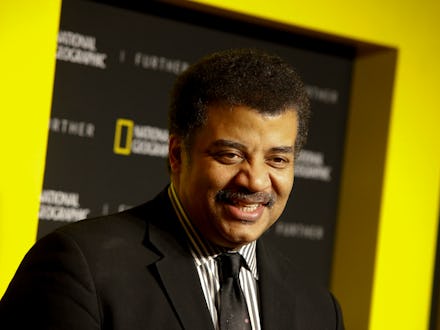Before the March for Science, scientists were already becoming a major political force

The March for Science will bring thousands of people to the National Mall in Washington to demand politicians factor science and proven fact into their decision-making. The march, which coincides with Earth Day, was spurred by the ascendance of an administration that is moving aggressively to reverse environmental regulations and cut science funding. More than 200 organizations have partnered to send a message that science is a critical part of good governing.
The Washington march, with simultaneous protests planned nationwide, is the most recent high-profile political push by the scientific community. But it is only the latest major step in a movement of scientists becoming more outspoken and political in recent years.
As doubting climate change and cutting environmental protections have become the way of the new administration, scientists have countered with arguments for fighting global warming and protecting the planet. That has grown into a movement of researchers who say facts and logic should take precedence over politics.
Now, a number of scientists are going one step further, pledging to run for office to combat the current administration's policies. Here are four scientists, some with political ambitions, who already have a history of injecting political advocacy into their lives of research.
James Hansen
You may not his name, but Columbia University climatologist James Hansen was one of the first to sound the alarm about climate change. Hansen wrote in 2007 that 350 parts-per-million was the safe upper limit for carbon dioxide in the atmosphere. Anything beyond that, Hansen argued, would force a dramatic shift in world climate.
Then, in September 2016, the world moved past 400 ppm, something which most scientists agree is likely irreversible. Hansen is known as the "father of climate change awareness."
Hansen's work led to the creation of 350.org, an environmental advocacy group that has organized around the country and pressured lawmakers to prevent climate change. While he was affiliated with NASA sparred with President George W. Bush. Hansen accused the Bush administration of editing press releases and scientific research to make climate change sound less harmful.
Hansen has not been critical of Trump, despite disagreeing with the president's stances on the climate and energy policy. He does have some advice for Trump: "Improving the situation of the common man, the best way he could do this would be a program of a rising carbon fee with the money distributed to the public."
Neil deGrasse Tyson
A social media and pop culture mainstay, Tyson is best known in the scientific community for being the director of New York City's Hayden Planetarium at the American Museum for Natural History, which aims to connect the general public with the frontiers of research in astronomy. Tyson earned his PhD at Columbia University for studying the a "galactic bulge," a group of stars packed tightly together at the center of a galaxy.
Tyson has hosted TV series like NOVA and Cosmos, publicly funded shows that explore the universe. He also regularly uses social media to refute fact-challenged claims. Tyson took rapper B.O.B. to task last year for claiming the Earth is flat. And he recently released a video saying everyone, including politicians, needs to understand the serious consequences of ignoring scientific fact.
Tyson has said he worries Trump's first budget would make the U.S. "weak" and "stupid."
Rush Holt
A congressman from New Jersey for 16 years, Rush Holt began his career as a physicist at Swarthmore College in Pennsylvania. Holt, the son of a former U.S. senator, was also the assistant director of a U.S. Department of Energy national laboratory in Princeton, New Jersey. His work has focus on alternative energy, including solar cells.
Holt ran in the Democratic primary for U.S. senator from New Jersey in 2013, but lost the race to current Senator Cory Booker. Holt became the CEO of the Washington-based American Association for the Advancement of Science. He has taken repeated stands against Trump's policies, including the limitations the president's travel bans would place upon the scientific community.
"We must make clear that an official cannot wish away what is known about climate change, gun violence, opioid addiction, fisheries depletion or any other public issue illuminated by research," Holt wrote in an op-ed published in Science shortly after Trump's election.
Steven Chu
In 1997, Steven Chu won the Nobel Prize for his discovery of how to trap and cool atoms with laser light. A little more than a decade later, the man with no formal political experience was tapped by President Barack Obama to lead the department of energy. Chu advocated for a shift away from fossil fuels and pushed green energy programs during his time as secretary, informed by his work as a physicist and biologist at University of California, Berkeley.
Chu and Ernest Moniz, Obama's second energy secretary, are a stark contrast to Trump's first pick for the job: Former Texas Gov. Rick Perry. Perry once received a letter grade of D in a college course called "Meats."